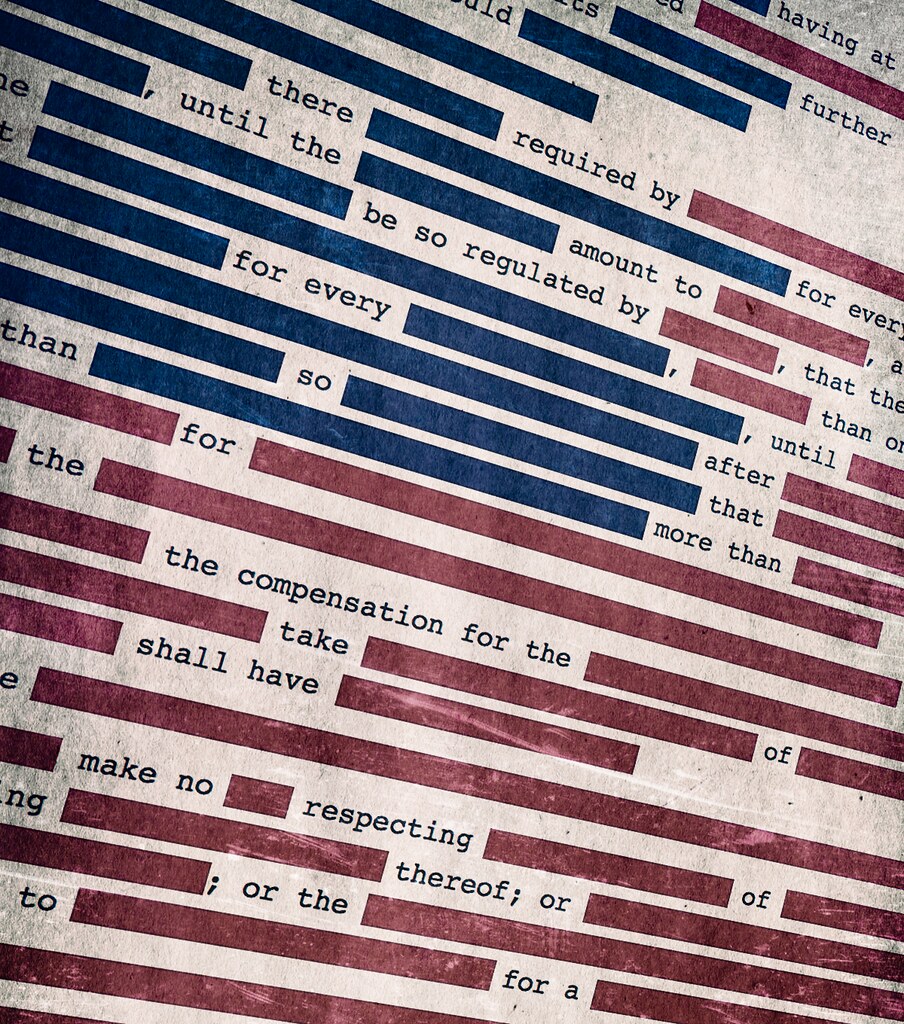The run-up to 2020 Super Tuesday
The cover-up continues. It has been almost a year since the special counsel Robt. Mueller delivered his eagerly anticipated report on Russian meddling into the 2016 election. After just two days of scrutinizing the four-hundred-page document, the Republican appointed AG (The Consigliere) Bill Barr, released his own controversial “summary” in which he essentially exonerated The Bad King and his campaign of any collusion with the Russians in attempting to help the president and hurt his Democrat opponent.
No collusion! No Obstruction!
This is now the official White House mantra, the chanted refrain at MAGA rallies.
A firestorm of criticism erupted when members of Mueller’s team—angered by the misrepresentation and false characterization of their two years of labor—began leaking to the press insinuations that the report was more damning of the president than was being portrayed by the dishonest, disingenuous AG, Bill Barr, and his DOJ lawyers.

Members of the House Intelligence committee—now under the chairmanship of Democrat Adam Schiff, and in line with Mueller’s original intent—demanded that the report be turned over in full without redactions to their committee. AG Barr responded, weeks later, by releasing another “summary,” again highly favorable to the president but so severely redacted—with whole sections and entire pages blacked-out—that no one accepted its again highly partisan conclusion that the president had committed no crimes. Those who before the release of the Mueller report—his loyal and staunchly supportive base—wanted to believe the president was innocent, still believe him innocent. Those who wanted to believe a year ago that the president of the United States is a crook, a liar, and a con man, still believe today that he is a crook, a liar, and a con man.
Following the Tea Pot Dome scandal, the Congress passed a law (federal statute 6103) stating that the chairman of the House Ways and Means committee could request the tax returns from any U.S. tax filer and the IRS “shall deliver” to the chairman’s office the requested return. In early April 2019, Chairman Neal of the House Ways and Means committee sent a letter to the commissioner of the IRS requesting six years of the president’s tax returns. His tax attorneys have been—for the last year—arguing that the president is “above the law.” The case went to the Supreme Court. Recently, The Star Court decided, in direct contravention to existing law—in a highly controversial 5-4 decision, with the Chief Justice voting with the majority—in favor of the president, that he was indeed “above the law” and did not have to produce his taxes to the House committee.
Billy is irate. “The Supreme Court has done this—contravened established precedent and overturned legally legislated law—throughout its checkered history. Much of it perpetrated under the highly questionable rubric of “original intent.” The Court, as it is constituted today, is not a body of honest jurists—but a bench of party loyalists and political hacks. As a former clerk, I am sorry to have to say it. But I know the truth—because I worked there!”
Before leaving the meeting, Shane asks Rosie one additional favor. He asks if she would be willing to meet with one of his analysts. The woman’s name he says is Elena Kutsayva. Shane explains her background.
“She was a troll (hacker) at the IRA, Internet Research Agency, a Russian state-sponsored organization in St. Petersburg that was financed and controlled by an oligarch named Prigozhin, known, colorfully, as the Tsar’s chef. It was her job to create Bots, false internet personas, to disseminate false and misleading disinformation, and maliciously and illegally influence the voting preferences of gullible, ill-informed American voters.”
Shane then tells Rosie that it bothered the thirty-year-old Elena that she was being used, exploited by Tsar Peter’s authoritarian government to disrupt the U.S. election and those of other Western democracies, when she herself opposed the autocratic and dictatorial practices of the Russian president in her own country.
“It all came to a head for her,” Shane went on, “when Boris Nemtzov, the Russian anti-Putin activist, was murdered in broad daylight on a Moscow bridge just a few blocks from the Kremlin. Elena knew that she could no longer remain silent—that she had to do something.”
Shane then emphasizes how—at grave personal risk to herself—Elena sought out the help of a foreign investigative journalist living and working in Moscow to help her reveal in a series of newspaper exposes the secret workings of the St. Petersburg troll farm.
“Ultimately,” Shane goes on, “she was found out to be the source of leaks that exposed the existence and true purpose of the IRA, and she was arrested and charged with treason against the Russian state.” Shane pauses. “She was put into the Lubyanka, the notorious central Moscow prison, where traitors and enemies of the state had been sent—since the time of Felix Dzerzhinsky, the feared spy boss and creator of Lenin’s dreaded Cheka—usually to be executed or else left to rot in its dank underground chambers.”
“Every morning I expected they would come for me and take me to one of their underground hell holes, and shoot me,” Elena would later tell Rosie.
“But Elena was one of the lucky ones,” Shane says.
Rosie is curious. “How’d you ever get her out of Russia?”
Shane smiles. “Do you remember the case of the “illegals,” the Russian agents arrested in New Jersey who were here living and posing as regular Americans?”
Rosie nods. “Yes. They were the inspiration for the popular Netflix series “The Americans.”
“That’s right,” Shane replies. “The spies were deported back to Russia and through the workings of an international civil rights group Elena came here to the United States in what was essentially a prisoner exchange. Once here, she went immediately into an FBI witness protection program. And now she works for me at CIA in my Russia House counter-intelligence unit as an analyst.”
Shane directs himself to Rosie. “She knows the inner workings of the IRA (Internet Research Agency), how they create their Bots, and she can recognize by what she calls “signatures,” the tell-tale giveaways that a social media persona is a Russian Bot. Cyberwarfare—particularly that aimed at us by the Russians—is the biggest threat to American national security. They meddled in our 2016 presidential election, continued in the 2018 mid-terms, and they are continuing today with an eye to helping the president win re-election. And this president and his toadies in the Senate are doing nothing to combat it.”
Rosie is eager to help the CIA in whatever way she can, but—
“I don’t understand,” she says. “What is it you want me to do?”
“Just meet with Elena,” Shane responds, “talk with her, and she’ll give you the names of social media personas that she believes are Bots being used by the Russians to poison and negatively influence our public political debate.”
“Okay,” Rosie agrees.
Shane continues. “Then I want you to write probably a series of editorials under your byline where you call out the Bots by name and explain to the American people just what they are and how the Russians use them. I’ll see that the pieces get into all the major national papers: The Washington Post, New York Times, The Boston Globe, Los Angeles Times, and maybe even The Wall Street Journal.” The people need to be able to identify these trolls and understand how the Russians are using the popular social media platforms like Facebook, Twitter, and Instagram to weaponize their disinformation attacks and disrupt our political process.”
Shane pauses and looks Rosie in the eye. “You can’t, of course, identify Elena or cite the Agency as the source of your information, but you can give the usual—for this city—anonymous “deep background” attribution as the basis for your reporting.”

